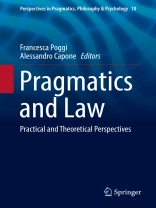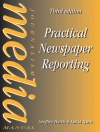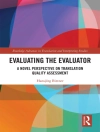This volume is the second part of a project which hosts an interdisciplinary discussion about the relationship among law and language, legal practice and ordinary conversation, legal philosophy and the linguistics sciences. An international group of authors, from cognitive science, philosophy of language and philosophy of law question about how legal theory and pragmatics can enrich each other.
In particular, the first part is devoted to the analysis of how pragmatics can solve problems related to legal theory: What can pragmatics teach about the concept of law and its relationship with moral, and, in particular, about the eternal dispute between legal positivism and legal naturalism? What can pragmatics teach about the concept of law and/or legal disagreements?
The second part is focused on legal adjudication: it aims to construct a pragmatic apparatus appropriate to legal trial and/or to test the tenure of the traditional pragmatics tools in the field. The authors face questions such as: Which interesting pragmatic features emerge from legal adjudication? What pragmatic theories are better suited to account for the practice of judgment or its particular aspects (such as the testimony or the binding force of legal precedents)? Which pragmatic and socio-linguistic problems are highlighted by this practice?
Table of Content
Preface by F. Poggi.- Part I Pragmatics and Legal Interpretation.- 1. Slippery Meaning and Accountability by Kasia M. Jaszczolt.- Implicitness in Normative Texts by Marina Sbisà.- 3. What Inferentialism tells us About Vagueness in Law by Damiano Canale.- 4. On the Possibility of Non-Literal Legislative Speech by Hrafn Asgeirsson.- 5. The Pragmatics of Scepticism by Pierluigi Chiassoni.- 6. Doubting Legal Language: Interpretive Scepticism and Legal Practice by Nicola Muffato.- 7. Legal Text and Pragmatics: Semantic Battles or the Power of the Declarative in Specialized Discourse by Ekkehard Felder.- Part II Pragmatics and Legal Theory.- 8. A Puzzle about Internal Legal Statements by Michael S. Green.- 9. Can Metalinguistic Negotiations and ‘Conceptual ethics’ Rescue Legal Positivism? By Teresa Marques.- 10. The Dark Side of Imperatives by Alession Sardo.- 11. Disputable Means: Pragmatic Knowledge Practices in Sovereign Debt Agreements. A Case of Study by Leticia Barrera.- 12. The Role of Pragmatics in the Web of Data by Pompeu Casanovas, Víctor Rodríguez-Doncel, and Jorge González-Conejero.- Part III Pragmatics and Legal Adjudication.- 13. Pragmatics of Adjudication. In the Footsteps of Alf Ross by Mauro Barberis.- 14. Pragmatic Disorders in Forensic Settings by Louise Cummings.- 15. The Pragmatics of Stereotypes in Legal Decision-Making by Federico José Arena.- 16. Epistemic Stance in Courtroom Interaction by Sune Sønderberg Mortensen and Janus Mortensen.- 17. Assessing Testimony and Other Evidencial Sources in Law: An Epistemological Approach by Hernán Bouvier and Florencia Rimoldi.












